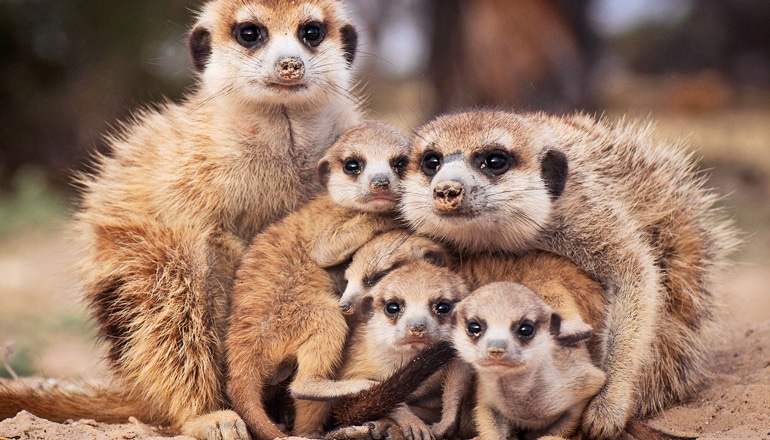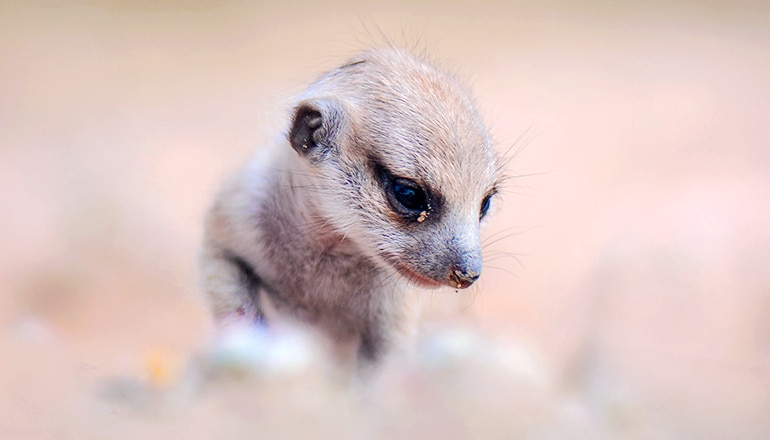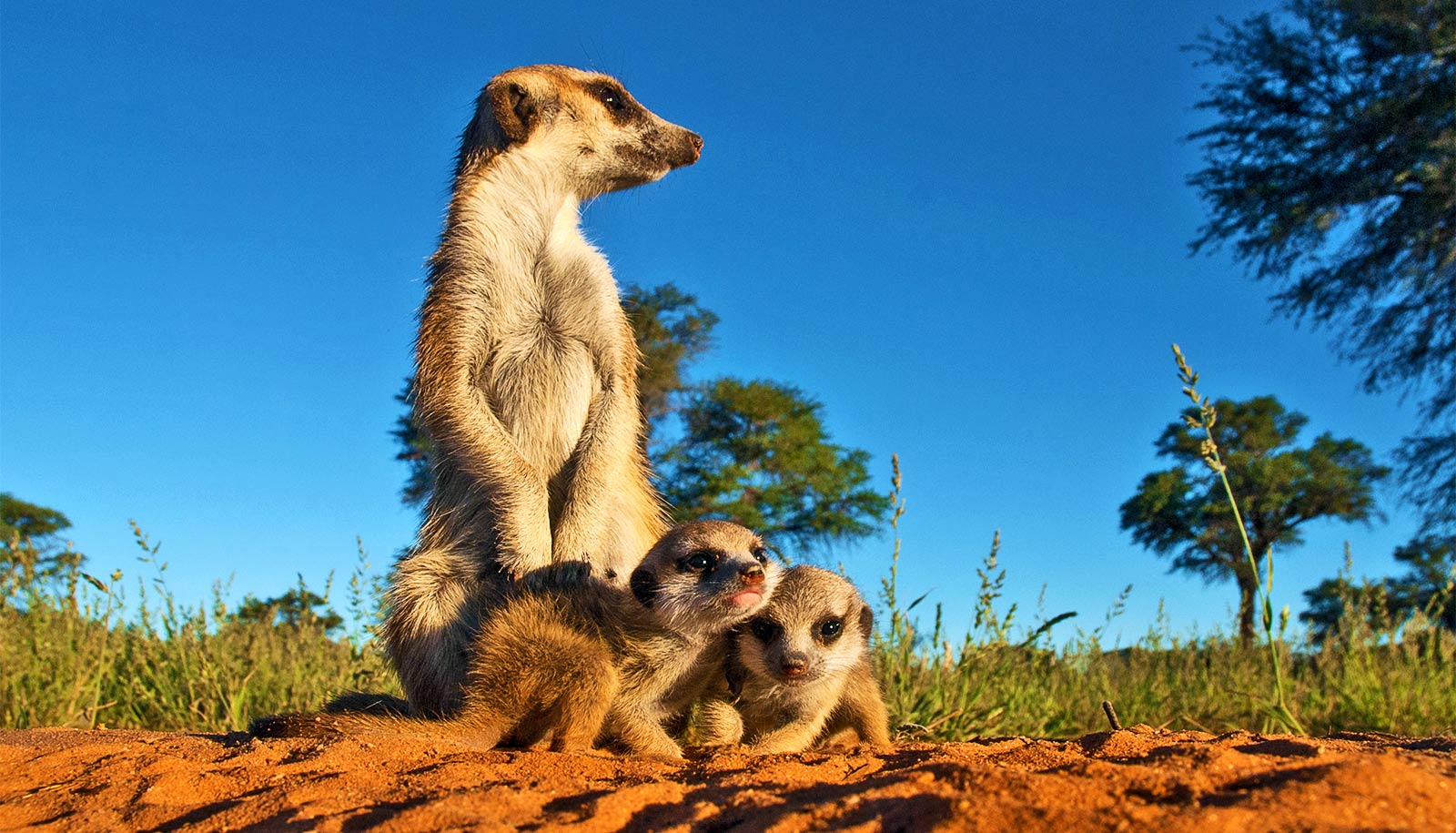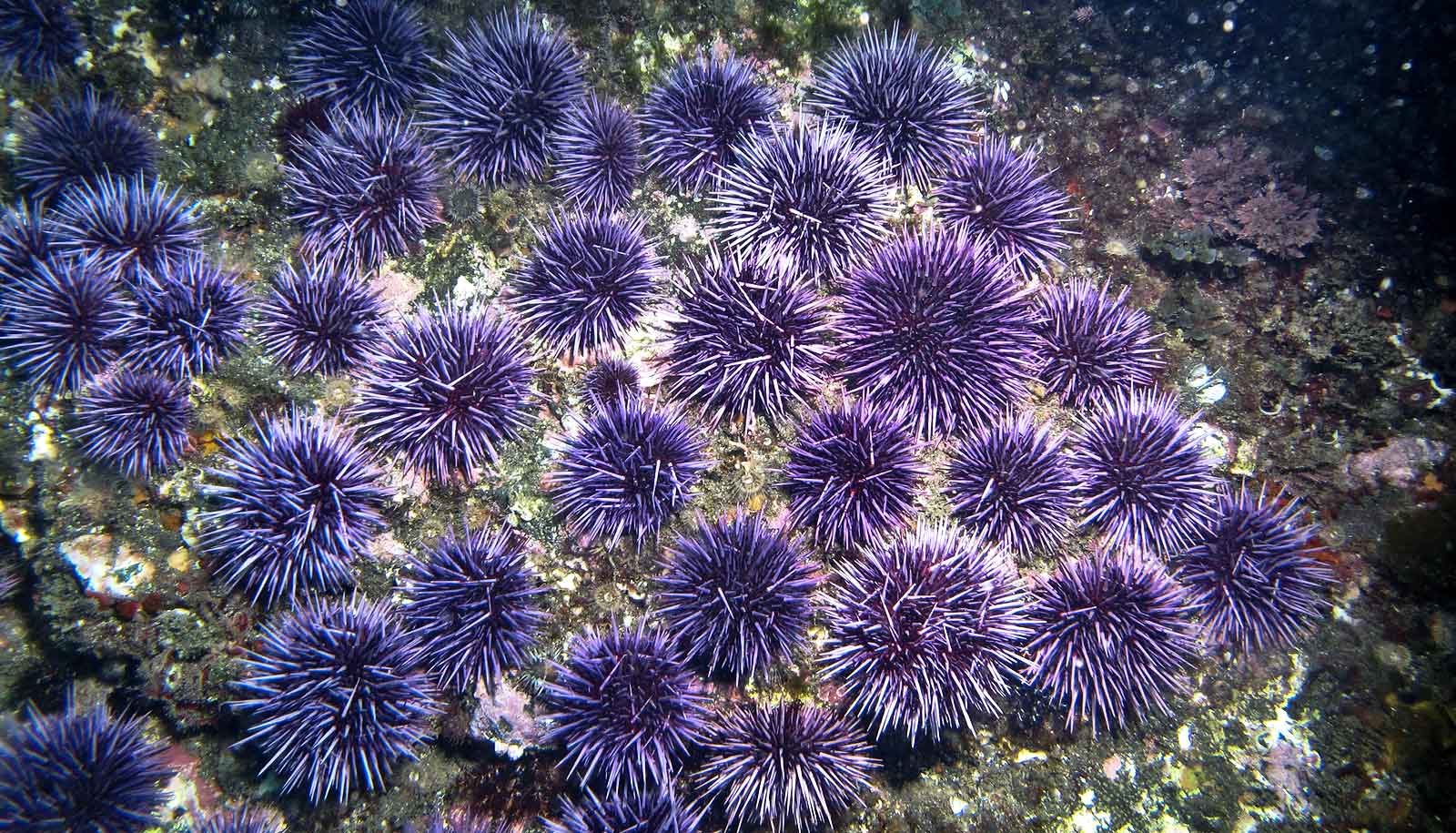When meerkat mothers feel stressed, it alters the growth and behavior of their daughters in a way that makes them more likely to help mom at their own expense, a new study shows.
Daughters of stressed meerkat mothers—but not sons—grow more slowly early in life, which reduces their future chances of having babies of their own. Instead, daughters from stressed mothers redirect their energy to help rear the future offspring of their mother, says Ben Dantzer, assistant professor of psychology and ecology and evolutionary biology at the University of Michigan.
“Because early life growth or body mass in daughters is a major determinant of their future reproductive potential, our results highlight that early life stress should reduce the future reproductive success of daughters.”

Helpful daughters
Maternal characteristics can have a profound influence on offspring, referred to as maternal effects.
For the study, which appears in Philosophical Transactions of the Royal Society B, researchers conducted experiments to test how stress hormones (glucocorticoids) of pregnant females affect the growth and cooperative behavior of offspring.
Researchers observed seven meerkat groups that produced 26 litters across three years. Some pregnant mothers received cortisol, which didn’t affect the pups’ survival rates. When researchers tracked the pups’ weight and behavior, the daughters whose mothers received cortisol grew slowly, but were more willing to help raise their mothers’ other pups in the future.
Fathers can’t nurse the pups, but they do “babysit” and feed offspring. These males didn’t have any role in the effects the researchers observed, Dantzer says.

What about people?
Most studies of maternal effects in nonhuman animals focus on how mothers can positively affect their offspring, such as increasing their survival or improving their chances at reproducing on their own, Dantzer says.
The results from this study instead highlight that stressed mothers could affect offspring in such a way that primarily benefits the mothers by increasing the likelihood that the offspring stick around to help care for their future siblings.
Many studies involving humans show that early life adversity—such as abuse or maternal stress—has long-term consequences on offspring. Does it influence their likelihood to help their parents in the future or help take care of their younger siblings?
Dantzer doesn’t know the answer, but he says it is an interesting possibility given that the social group structure of humans (where older siblings may babysit and feed their younger siblings) is similar to meerkats.
Source: University of Michigan

